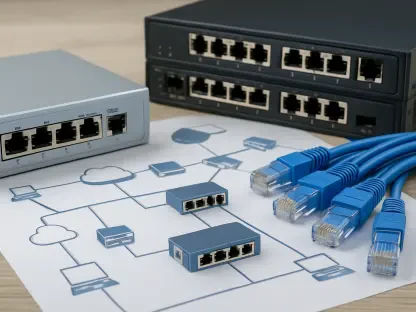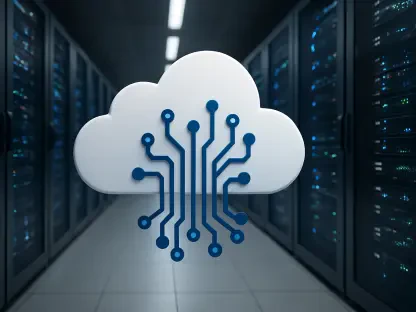The article “Pioneering the Industrial Edge Computing Frontier with Avassa” dives into the transformative shift happening in the industrial segment as it increasingly adopts edge computing technologies. The company at the forefront of driving this innovation is Avassa, which has been operational since 2020 and has a pronounced presence in both the retail and industrial sectors. However, the company’s current emphasis lies mainly in the industrial sphere, where edge computing technology adoption is accelerating in response to growing demand for robust and secure infrastructure for managing industrial applications.
Industrial Transformation with Edge Computing
Shifting to Containerized IoT Applications
The crux of Avassa’s efforts rests in facilitating the transformation of software operations from proprietary systems to fully containerized, Linux-based IoT applications. This shift is a critical response to the need for seamless offline operations and enhanced security measures in the face of increasing cyber threats. The industrial sector, including subdomains like manufacturing enterprises and industrial machinery vendors, stands as the primary beneficiary of this transformation.
Amy Simonson, Head of Marketing at Avassa, explains that for enterprise-sized industrial companies, operating software close to data sources, often in resource-constrained and, at times, offline environments, is nearly a standard practice. The demand for edge infrastructure in these settings mirrors that of other enterprise verticals, though the adoption pace in industrial contexts is significantly rapid. Simonson emphasizes that the quick uptake of these technologies in the industrial segment is driven by the pressing need for enhanced efficiency, reliability, and improved data security at edge locations.
Key Themes: Edge Applications and Infrastructure Requirements
When discussing industrial applications, Simonson mentions that these could range from factory floor monitoring and production line applications to parts of industrial IoT systems. Common requirements span remote management, version control, comprehensive monitoring, and observability. Avassa’s solutions cater to these needs by enhancing versioning, observability, and lifecycle management for factory systems, frequently incorporating embedded vision tools and sensor networks.
Additionally, the need for integrated and efficient data management is critical in these environments. Avassa’s platform meets these demands by providing tools that handle data from multiple sources in real-time, ensuring minimal latency and high reliability in operations. The company ensures that its solutions are flexible enough to adapt to different industrial requirements, making it possible for enterprises to implement cutting-edge technologies smoothly without disrupting their existing workflows.
Target Market Categories
Manufacturing Enterprises
Avassa’s overarching strategy targets two main market categories. The first category is manufacturing enterprises, which typically operate factories where critical applications run production line operations. Avassa’s platform supports these enterprises in managing the lifecycle and versions of applications while ensuring seamless operation even in offline scenarios.
Manufacturing enterprises benefit significantly from Avassa’s platform as it addresses challenges such as maintaining operational continuity during network downtimes and ensuring the up-to-date deployment of software applications and patches. By leveraging containerized applications, manufacturers can isolate different processes, reducing the risk of system-wide failures and enhancing system security. Avassa’s robust framework enables manufacturers to execute sophisticated production line monitoring, predictive maintenance, and real-time analytics.
Industrial Machinery Vendors
The second target group spans vendors of a wide range of machinery from agricultural robots to medical devices. These machines often function autonomously in critical settings, where reliable application lifecycle management is paramount. Avassa’s platform supports vendors in transitioning from static product delivery to service-based systems.
For industrial machinery vendors, the ability to manage application lifecycles remotely and deploy updates efficiently is crucial. Avassa’s platform offers these capabilities, allowing vendors to maintain their machines’ performance and functionality continually. The transition to service-based systems brings about enhanced customer satisfaction, as vendors can provide more personalized and responsive services. This evolution also opens new revenue streams for vendors through subscription or maintenance services, driven by the promise of optimized and up-to-date machine operations.
Use Cases Driving Industrial Transformation
Ekobot: Autonomous Agricultural Robots
A standout example provided in the article is Ekobot, which uses Avassa’s platform to manage robots that autonomously pick weeds in onion fields. This scenario highlights the importance of frequent AI model updates, offline capabilities, and robust software management to ensure optimal performance. These robots symbolize the broader trends towards automated and AI-driven operations in industrial settings.
The use of Avassa’s platform allows Ekobot to maintain and update its AI models swiftly, even in the absence of a continuous internet connection. This capability is essential for ensuring that the robots perform consistently and adapt to evolving conditions in the field. Moreover, the platform’s robust software management ensures that any issues are quickly identified and resolved, minimizing downtime and enhancing operational efficiency. Ekobot’s success exemplifies the potential of industrial edge computing in revolutionizing agricultural practices through automation and technology.
Competitive Advantage and Industry Trends
Commercial Support and Hardware Independence
Avassa distinguishes itself with several key advantages, including commercial support with rapid feature deployment and its hardware and Linux independence. Their platform can operate on various Linux distributions, thus providing flexibility for enterprises. Carl Moberg, co-founder and CTO of Avassa, notes the paradigm shift towards platform-like experiences at the edge, even in traditionally conservative industries. This shift aligns perfectly with Avassa’s vision, which emphasizes an application-first approach within edge environments, particularly for AI-driven use cases.
Moberg further elaborates that Avassa’s ability to operate independently of specific hardware configurations allows enterprises to utilize existing infrastructure, reducing the overall cost of implementing edge computing solutions. This flexibility ensures that enterprises can leverage cutting-edge technology without incurring significant expenses on new hardware. Additionally, the company’s commitment to rapid deployment of features ensures that clients always have access to the latest advancements, positioning Avassa ahead in a competitive market landscape.
AI Applications at the Edge
The emergence of AI applications at the edge is brisk, and Avassa simplifies managing these workloads by providing tools that allow industrial enterprises to deploy efficient and tailored solutions. A particular strength of the Avassa platform is its support for bootable containers—a streamlined and pared-down Linux lifecycle management approach designed for edge environments, emphasizing flexibility and efficiency.
By supporting AI applications at the edge, Avassa enables industrial enterprises to perform complex data analysis and make real-time decisions without relying on cloud connectivity. This capability is crucial for operations that require immediate responses, such as predictive maintenance and quality control. The platform’s bootable containers provide a lightweight yet powerful solution for managing IoT devices, ensuring they operate efficiently and securely. This focus on AI and edge computing positions Avassa as a leader in driving technological innovations that enhance industrial processes and outcomes.
Shaping the Future of Edge Computing
Application-Centric Model
Avassa’s impact on industrial companies’ infrastructure and software approach signifies a move towards an application-centric model. This model enables industrial enterprises and machinery vendors to optimize their infrastructure, increase efficiency, and innovate rapidly without being hamstrung by siloed systems. By providing best-of-breed solutions tailored to unique requirements, Avassa is positioning itself as a crucial partner for industrial companies aiming to maintain a competitive edge in an evolving technological landscape.
The application-centric approach allows enterprises to focus on enhancing specific processes and outcomes rather than being bogged down by overarching system constraints. Avassa’s solutions offer comprehensive support for developing, deploying, and maintaining applications that meet precise industrial needs. This shift empowers companies to innovate continuously while ensuring their operations remain efficient and secure.
Accelerating AI and Advanced Technologies
The article “Pioneering the Industrial Edge Computing Frontier with Avassa” explores the significant changes occurring in the industrial sector as it increasingly integrates edge computing technologies. Avassa, a company that has been operational since 2020, leads this innovative movement. Since its inception, Avassa has made a strong mark in both the retail and industrial sectors. Nevertheless, their current primary focus is on the industrial field, where the adoption of edge computing is rapidly growing. This surge is driven by the need for a robust, secure infrastructure capable of effectively managing industrial applications.
Edge computing, which brings data processing closer to where it is generated, helps reduce latency and increases real-time analysis capabilities, benefiting industries that require swift decision-making and enhanced operational efficiency. As industries evolve, Avassa’s expertise provides them with the tools to harness these advancements, ensuring they stay competitive in an increasingly digital landscape.









